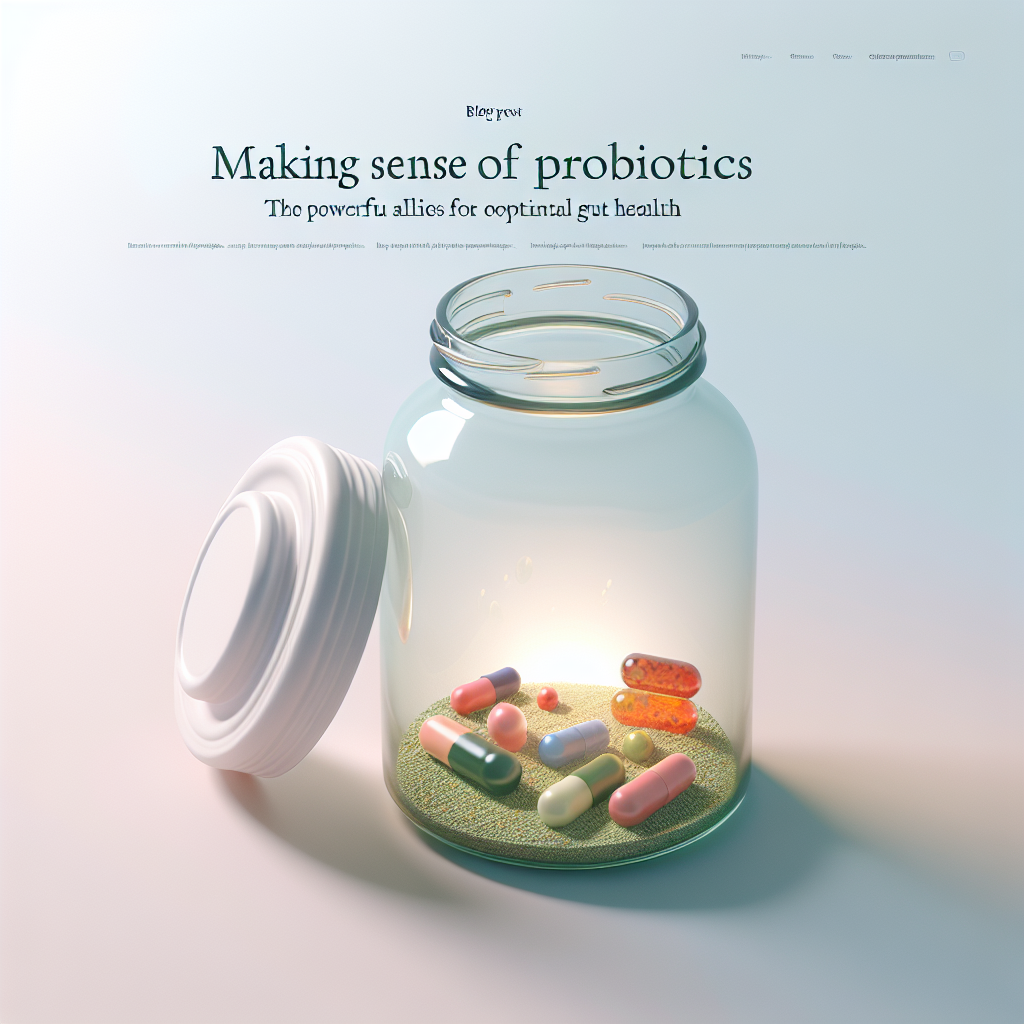### Making Sense of Probiotics: The Powerful Allies for Optimal Gut Health
In recent years, the importance of maintaining a healthy gut has gained significant attention in the worlds of health and wellness. The countless health benefits of a balanced gut, ranging from improved digestion to enhanced immunity and mood regulation, have led many to search for strategies to optimize their gut health. Among these, the use of probiotics has emerged as a promising approach. This post is designed to be a quick guide to understanding probiotics, their benefits, and how to use them effectively.
##### What Are Probiotics?
Probiotics are a type of beneficial bacteria that live in our gut. They’re often considered the “good” bacteria since they help keep our digestive system healthy. They work by crowding out harmful bacteria, aiding in digestion, and producing substances that have various health benefits.
##### Health Benefits of Probiotics
1. **Improved Digestive Health**: Probiotics can alleviate digestive problems such as [Irritable Bowel Syndrome (IBS)](https://www.mayoclinic.org/diseases-conditions/irritable-bowel-syndrome/symptoms-causes/syc-20360016), constipation, and diarrhea. They help normalize bowel movements and lessen gastrointestinal discomfort.
2. **Enhanced Immune Function**: Probiotics can enhance our immune function by aiding in the production of natural antibodies. They may also boost immune cells like IgA-producing cells, T lymphocytes and Natural Killer cells.
3. **Mental Health Benefits**: Recent [studies](https://www.ncbi.nlm.nih.gov/pmc/articles/PMC5641835/) have found a correlation between gut health and mental health. Probiotics can improve mental health disorders such as anxiety, depression, autism, obsessive-compulsive disorder (OCD), and memory.
##### Selecting a Probiotic Supplement
When seeking a probiotic supplement, there are several considerations to be mindful of:
1. **Strain Specificity**: Different probiotics do different things. Check the label for the type of organisms, genus, species, and strain to ensure it aligns with your health needs.
2. **High CFU Count**: The effectiveness of probiotic supplements is often measured by how many live organisms (CFUs – colony forming units) they contain. Look for a probiotic with a high CFU count, typically in the billions.
3. **Storage**: Some probiotics need to be kept in the fridge to remain effective, while others can be stored at room temperature.
##### Incorporating Probiotics into Your Diet
Apart from supplements, probiotics can also be found naturally in certain foods. These include yogurt, kefir, sauerkraut, tempeh, kimchi, miso, kombucha, pickles, and certain types of cheese (gouda, mozzarella, cheddar, and cottage cheese).
Incorporating these probiotic-rich foods into your daily diet can help maintain a healthy gut microbiome.
##### Conclusion
Maintaining a healthy gut microbiome has a profound impact on our overall health and wellbeing. Probiotics, whether consumed naturally in foods or in supplement form, can aid in promoting a balanced gut and facilitating various bodily functions.
Before starting any new supplements, however, always consult a healthcare practitioner for advice tailored to your individual needs.
Probiotics represent a compelling area of health and wellness, offering exciting potential for advancing our understanding of the body and developing more effective treatments for a wide variety of health issues. The future of gut health looks promising indeed!
> “_In the final analysis, we are only as healthy as our microbiome. Therefore, nourish it wisely!_” – Unknown.


